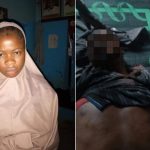Nigerians from across the states in the country have been called upon to defend their ancestral lands against their usage for Ruga cattle settlement by the Federal Government.
The Ooni of Ife, Oba Adeyeye Ogunwusi, and Nobel laureate, Prof. Wole Soyinka made the call in a joint communique issued on Sunday to document highlights of their meeting which took place in Thursday in Abeokuta.
The Ooni of Ife and the Nobel laureate, in the communiqué said their call on Nigerians to defend themselves became necessary as the Coalition of Northern Groups gave a 30-day ultimatum to the Federal Government to implement the Ruga project for Fulani herders despite its suspension after a public outcry against it. The communiqué stated:
“In this regard, the recent ultimatum delivered by a sectarian order to the President of this nation to set up the so-called Ruga cattle settlements across the entire nation within a stipulated time, despite the national outcry, should be acknowledged as an entitlement under the bounty of freedom of expression.
“In return, we exercise ours, and call upon Nigerian nationals across state demarcations to defend the sanctity of their ancestral lands. This birthright has never been annulled, not even under colonial occupation.”
The Ooni and Soyinka also noted in the communique that the colonial contraption known as Nigeria could not survive another upheaval in the nature of the civil war of the Biafran secession, advising that all efforts must, therefore, be made to anticipate and douse socio-political flare-ups advancing the chances of a recurrence of such a conflict, no matter how reduced in scale, its devastating effects on the Nigerian humanity.
“Among such issues of urgent import are the ongoing insurrectional movements that derive from religious fanaticism and intolerance, exemplified by Boko Haram and allied tendencies, as well as aspects of commercial enterprise, in which some groups consider themselves especially privileged, singular, and above the laws and entitlements that are binding on other sectors of commercial and industrial undertaking. We have in mind destructive forms of social transactions that characterise groups such as nomadic cattle herdsmen, and their umbrella groupings in the nature of Myetti Allah.
“We confess ourselves increasingly distressed and appalled, that the hitherto harmonious cohabitation, even routine collaboration, among the productive arms of society that Nigerians have taken for granted even from pre-colonial times, have deteriorated to unprecedented levels of barbarity, contempt for human lives and a defiant trampling on the civic entitlements of other productive sectors such as farmers, the providers of both food and cash crops. This abhorrent, yet consistent pattern of sectarian, and homicidal arrogance is obviously not merely counter-productive but inhuman, criminal and divisive”, they said.
Oba Ogunwusi and Soyinka also re-affirmed their commitment to the rights of every individual, community, collectivity of human beings as primary and pre-eminent above other parameters of human development or formal associations, calling on Nigerians to recognise that the internal colonisation project was ever recurrent and that there were backward, primitive, undeveloped minds that failed, and continued to fail to overcome delusions in the antiquated belief in sectarian domination as the key to social existence.
They charged the Nigerian people, both at state and community levels, to convoke a series of frank encounters, across various interests and concerns to debate and determine in full freedom the future structure of the nation.
“We consider it a primary imperative of nation existence that the constitutive parts of the nation take steps to preserve and enhance their distinct cultural identities, including tested and relevant pre-colonial values, their spiritual apprehension of phenomena and worship, all without detriment to the principles and ideals of mutual co-existence.
“To this end, we undertake to create state-of-the-art ethnic museums for our people both at home and in the Diaspora, where present and future generations can access their histories and cultures vividly, as living expressions of their very humanity, not simply as relics of eras vanished for ever or irrelevant to the present”, the Ooni and Soyinka submitted.



!["I Made Them Eat Grass" - Jay Jay Okocha Reveals How He Tackled Racism In Germany [Video] 2 "I Made Them Eat Grass" - Jay Jay Okocha Reveals How He Tackled Racism In Germany [Video] 2](https://media.kanyidaily.com/2019/07/08030648/Jay-Jay-Okocha-150x150.png)












